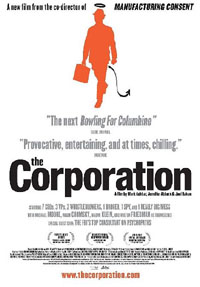Its great to see more positive female role models in the media, but I wonder if they go far enough?

Supergirl
You must have heard the pilot episode of Supergirl was leaked (I think put online, I mean the Gotham and Flash pilots and others were also leaked)
The first episode of CBS’s forthcoming Supergirl series has leaked online a full six months before it was scheduled to air. Two versions of the 46-minute episode (one in full HD and another in lower resolution) made their way onto torrenting sites late last week, with BitTorrent news site TorrentFreak describing the leak as a “complete surprise” to the pirating community.
I watched the pilot episode and it struck me as fun and very like the Flash (not really a surprise as its the same kind of team). I’m not the only one who says so either in this spoiler free view.

Agent Carter
After Agents of SHEILDs got very samey, I pretty much ignored Agent Carter till I saw people talking about it.
To be fair I checked out a couple of episodes but it hasn’t grabbed me, so its just sitting there waiting for me to watch the rest sometime. However, I have to admit its got a good feeling throughout.
Agent Carter, is a sly analogy for the state of women today, especially women in geek culture. The show reflects pop media buzz topics, like Gamergate, Fake Geek Girl memes, and the sexual harassment of creators, through the lens of a time that seems archaic. However, the topics, the misogyny and inequality that Peggy deals with, is anything but archaic. These are things that modern women deal with on a daily basis: the street harassment, the catcalling, the sexualization, the dehumanizing, the diminishing, and the belittling.
Peggy Carter is the modern woman, capable and strong, but forced into a world that will not accept her for who she is and will not listen to her speaking out against the men who put her down
Some reviews are less sure about the feminist angle.

Mad max: Fury Road
When I first saw posters for the Madmax reboot, I pretty much dismissed it but then I started hearing how interesting it actually is and how it passed the Bechdel test…
The Bechdel Test is a film litmus test. To pass, a movie must have two female characters, with names, who talk to each other, about something other than a man. It’s not perfect but it helps illustrate how utterly underrepresented women’s voices are in film. “Mad Max: Fury Road” passes on a level heretofore unheard of outside “chick flicks.” There is a moment late in the film when no less than twelve women — seven of them named — are talking together. On the one hand I am mortified this is cause for celebration. On the other hand, it’s a decisive victory worthy of a fist pump.
I’m not saying this is all something new, just interesting to see a few come out about the same kind of time. It would be nice if Hollywood would take more risks with the under represented.
Sure its a glitch in the matrix and we’ll be back to the 50 shades of greys again soon enough…
Although I’m going to say, it would be amazing to turn some parts of Girl with a one track mind into a film?
Its certainly could/would work better than as a TV series which diary of the call girl got turned into. Its worth reading both blogs as they so very different in many accounts! The feminist message of empowerment could really work well, wonder if Zoe ever considered it as a film, especially as she use to be in the film business herself…









